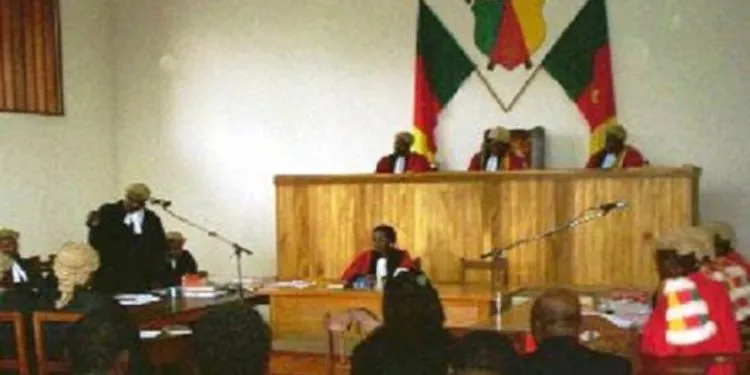The February 14, 2020 massacre in Ngarbuh, a locality in Ndu Subdivision, North West region of Cameroon is an indelible memory in the minds of many.
On that fateful day, security officers accompanied by a local vigilante stormed Ngarbuh, killing many villagers, among the victims were kids and a pregnant lady.
After intense arm twisting by rights groups and the international community, government finally accepted the role played by security forces it had since portrayed as flawless in their ongoing fight against separatists in the country’s Anglophone regions.
Those indicted include Baba Guida, Sanding Sanding Cyrille, Haranga Gilbert, Tata Nfor Maxwell alias Bullet and unidentified members of a vigilante group.
One year later, however, justice is yet to be served families for the 22 civilians gunned down.
Justice or death trap for victims?
For the first time, the families of the victims of the Ngarbuh massacre will take part in the trial of three Cameroonian soldiers suspected to have carried out the killings.
The three soldiers being tried for murder, arson and destruction, violence against pregnant women, refusal to take orders have been booked for Thursday, June 17, at a military court in the capital city, Yaounde.
Shortly after the trial date was made known, rights group, Human Rights Watch said it was a step in the right direction, but more work needed to be done.
To Ilaria Allegrozzi, senior Africa researcher at Human Rights Watch, “ensuring a fair trial for those accused of the killings – one that is open to the public and where all those participating feel comfortable that their security is guaranteed – will be crucial in helping to end the cycles of violence and impunity that have plagued the Anglophone regions for the last four years”.
From a distance, the trial which is set to finally commence is worthy of a sigh of relief from victims, given that they may finally get justice. In reality however, the trial has opened a door to several more challenges to overcome.
The primary challenge they are set to face, is that of logistics. They would have to brave about 500km of bad roads to attend every court session. The costs too, are nothing to write home about.
“Our clients don’t have the financial means to travel to Yaoundé,” Human Rights Watch quoted Richard Tamfu, one of the victims’ lawyers as saying.
The security situation does not make the situation any better for them. With the North West and South West regions still caught up in increasingly savage acts of violence on a daily basis, previously common movements are now nothing short of death traps.
Many have asked that government should show goodwill towards victims, by shifting the trial to their regional headquarter, Bamenda, or even to Nkambe in the Donga Mantung division, close to where the incident happened.
To Barrister Tamfu, “the court sitting in Bamenda would fit with the key principle of meaningful access to justice, bringing it closer to the victims”.
At press time however, government in usual fashion appears to have neglected the victims’ appeal, giving them a deaf ear. The victims would likely have to rely on the ability of persons of goodwill to transport, cater for and feed them through out the trial period.
Ticking time bomb
While the Ngarbuh massacre remains one of the worst incidents recorded in Cameroon’s four-year-long armed conflict, several other instances abound where civilians have been victims of excesses orchestrated by the belligerents.
In Kumba on October 24, 2020, gunmen stormed a school and opened fire on students. They killed 7 and injured about 13 others, before leaving the campus.
Till date, the perpetrators remain at large and unknown. Localities such as Kumbo, Mautu, Muea, Kwakwa, Mamfe and more have also had their fair share of the violence which has left thousands dead.
Several hundreds of thousands have been displaced in and out of the country as fighting persists, but government and jailed separatist leaders have failed to find common ground for peace talks.
With the fighting raging on, the possibility of more Ngarbuh and Kumba-type incidents increases daily.



